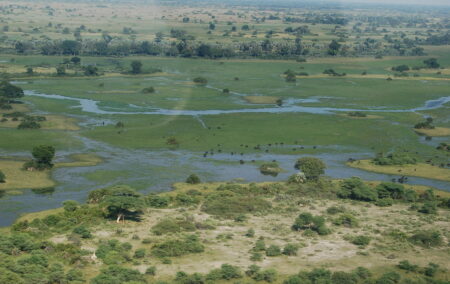Northern Botswana has been identified as the ‘ancestral homeland’ of modern humans.
A study recently published in the journal Nature by a team of researchers from institutions in Australia, South Africa and South Korea argues that the ancestors of modern Homo Sapiens emerged in the region south of the Greater Zambezi River Basin. They remained there for some 70 000 years until shifting climatic conditions pushed them to migrate.
The study examined DNA (using samples of Khoisan people in Namibia and South Africa), along with climate data and archaeological evidence.
Vanessa Hayes, a South African-born, and now Australia-based, geneticist, who led the study commented: ‘It has been clear for some time that anatomically modern humans appeared in Africa roughly 200 000 years ago. What has been long debated is the exact location of this emergence and subsequent dispersal of our earliest ancestors. We’ve been able to pinpoint what we believe is our human homeland.”
At one point, this region contained a large lake-system, which broke up and produced wetlands, which are highly supportive of life. As these began to dry up, waves of migrants moved out to other regions of Africa and the world beyond. However, a small remnant population – descended from these early humans – adapted to the dry conditions. Their ancestors are to be found in the present-day Kalahari.

